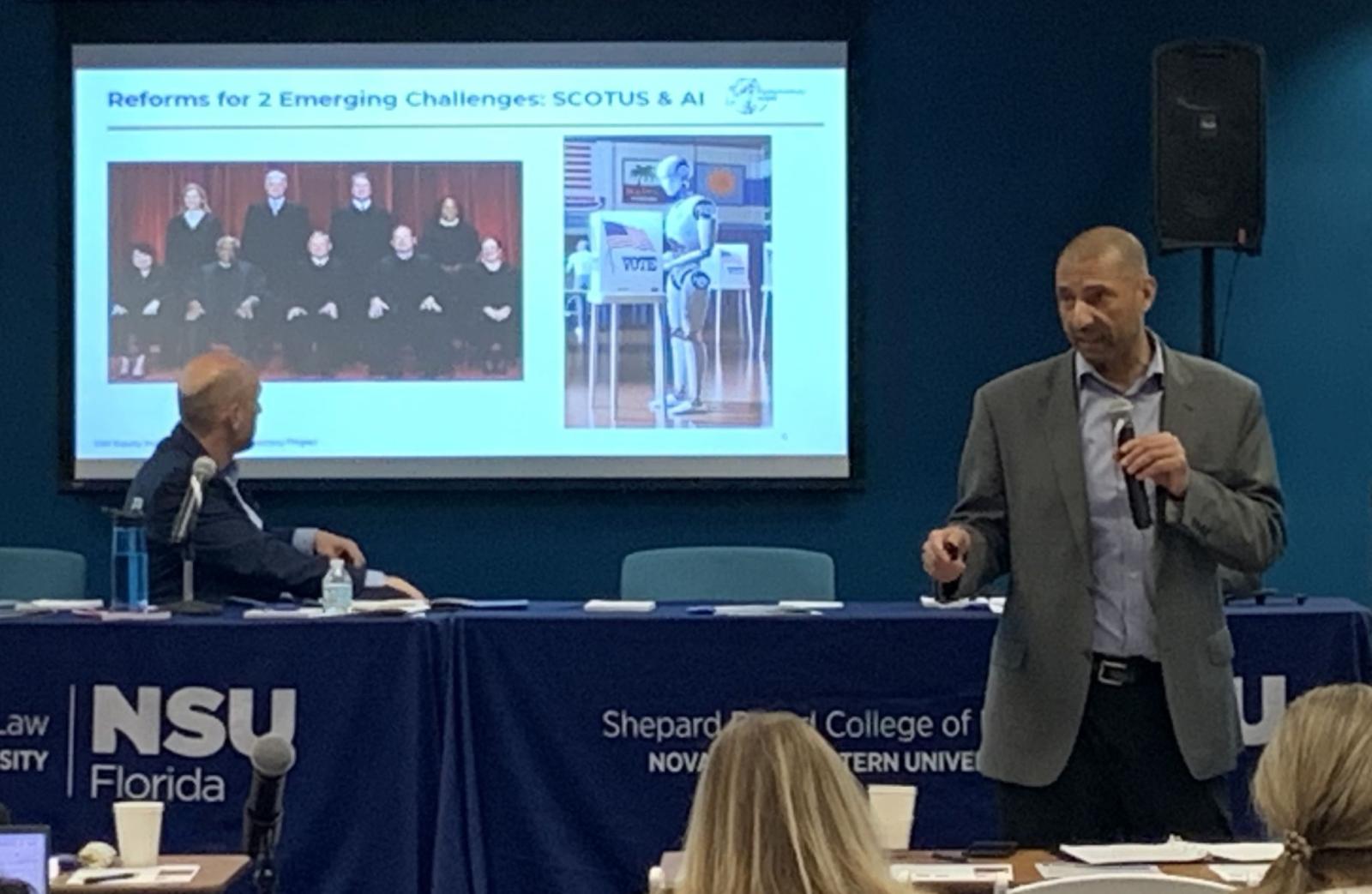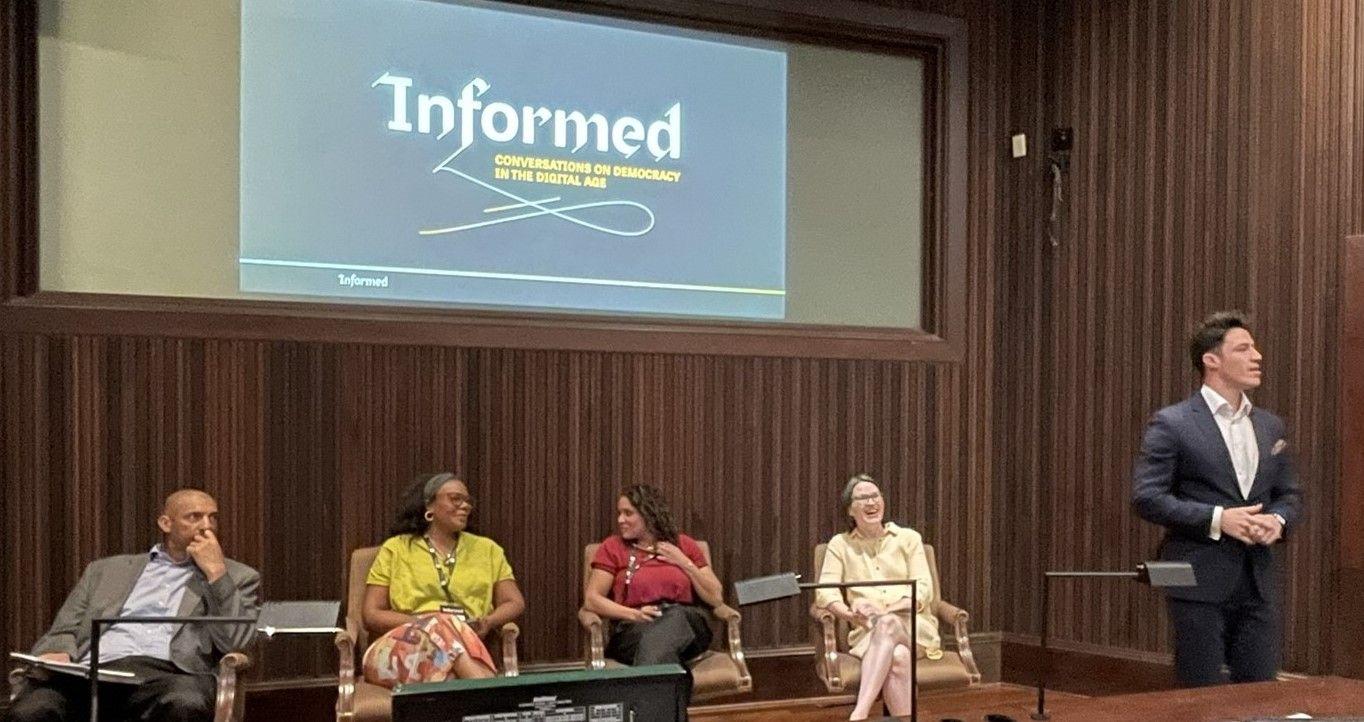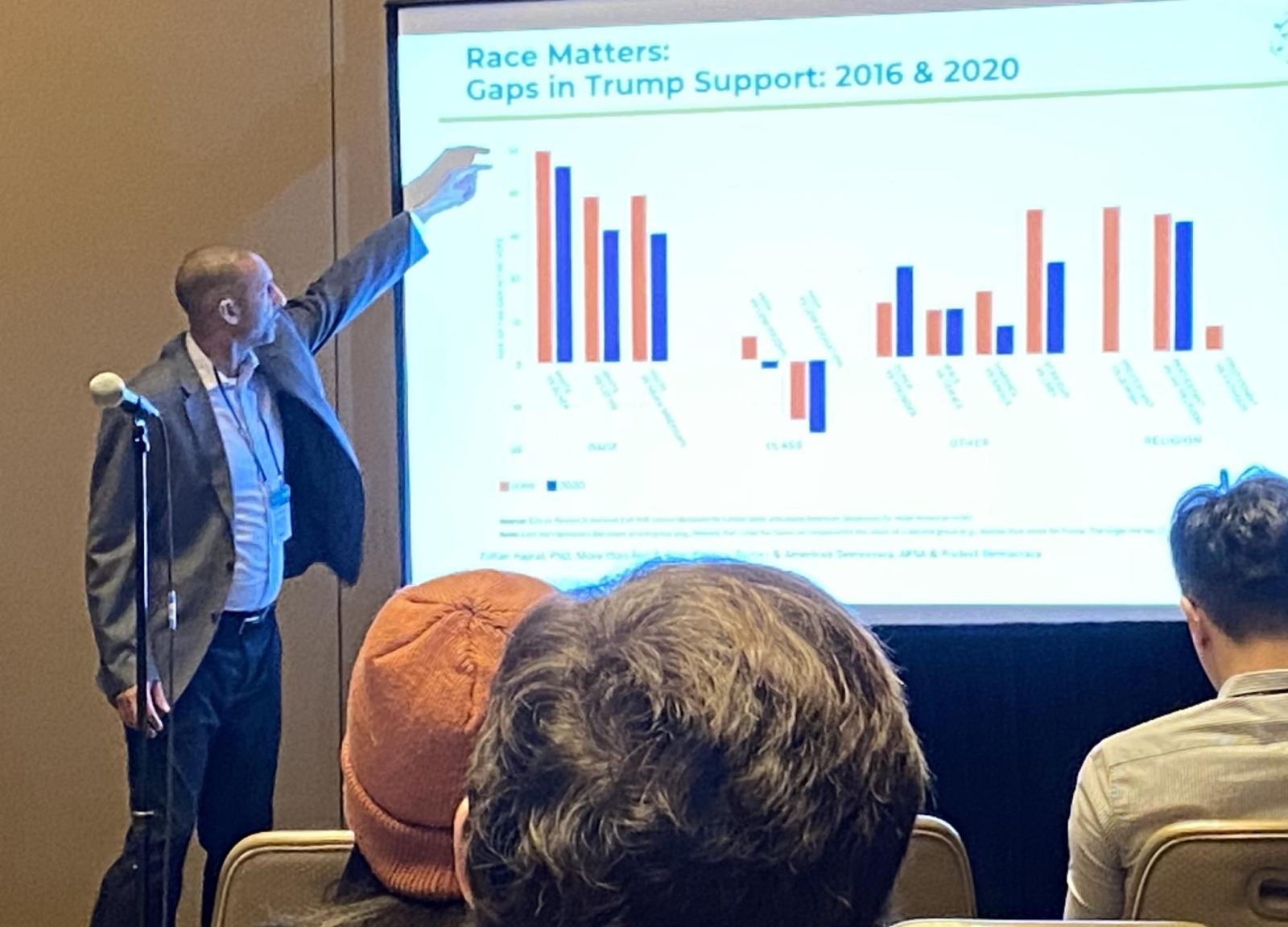As we continue to celebrate Black History Month, it's crucial to reflect not only on the achievements and contributions of Black Americans but also on the ongoing challenges they face. The Patricia Roberts Harris Research Professor of Law Spencer Overton has been instrumental in shedding light on the intersection of race, artificial intelligence (AI), and democracy. His recent engagements, as depicted in excerpts from his LinkedIn posts, present powerful advocacy for GW's Equity Institute, urging us to confront systemic issues and strive toward a more inclusive future.
At the Knight Foundation's 2024 INFORMED Conference in Miami, Overton partook in a panel orchestrated by the George Washington University Law School's Multiracial Democracy Project. He discussed ideas from the law review article he's currently writing, "Anticipating Racial Harms to Democracy from Artificial Intelligence." His remarks highlighted the urgent need to anticipate racial harms to democracy from AI. Overton's observations highlight the nuances of racial polarization and its implications for the 2024 Presidential election, stressing the pivotal role of AI in either fostering inclusivity or perpetuating disenfranchisement.
Moreover, Overton's engagements extend to grassroots initiatives to transform electoral systems and advance racial equity. His involvement with More Equitable Democracy (MED), a racial justice organization dedicated to reforming electoral mechanisms, highlights his commitment to tangible change. At the advisory board meeting, he reviewed MED's progress since launching in 2018 and strategized their future work. The Equity Institute will also hold MED's "Lift Every Voice" convening of diverse community organizers in April.
At the 2024 Association of American Law Schools (AALS) Annual Meeting, Overton sat on a panel discussing AI & Defending Multiracial Democracy organized by the Equity Institute's Multiracial Democracy Project. On this panel, he collaborated with esteemed academic colleagues to dissect the intricate relationship between AI, race, and democracy and highlight the disproportionate impact of technological design on marginalized communities.
Lastly, at Nova Southeastern University Shepard Board of College's Voting Rights Symposium, Overton joined democracy scholars and activists to discuss two emerging threats. The hostility to the Voting Rights Act and harms from AI. Overton said, "In anticipation of the U.S. Supreme Court continuing its scaleback of the Voting Rights Act, I discussed the costs and benefits of legislative updates to the Voting Rights Act, reforming the U.S. Supreme Court, and adopting alternative systems like proportional representation." Additionally he said, "On AI, I urged us to look beyond deepfakes and anticipate the various ways in which AI can be used to harm multiracial democracy. I also reviewed some principles I’m developing to mitigate racial harms to democracy (e.g., constantly anticipating and assessing racial harms, preventing algorithmic discrimination, protecting data privacy to mitigate targeted racialized disinformation and polarization, regulating targeted threats and deception, requiring nationwide preclearance of all AI-created voting rules & districts)."
As the landscape of democracy continues to evolve, Professor Spencer Overton stands as a steadfast proponent of equity, justice, and inclusion. For more information on GW's Equity Institute and its projects and events, please visit the Equity Institute website.







